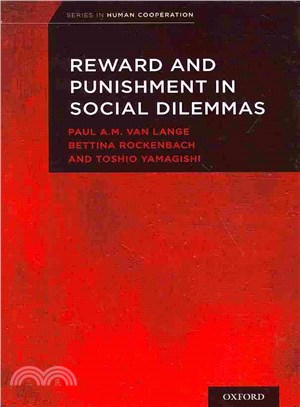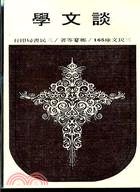Reward and Punishment in Social Dilemmas
商品資訊
ISBN13:9780199300747
出版社:Oxford Univ Press USA
作者:Paul A. M. Van Lange (EDT); Bettina Rockenbach (EDT); Toshio Yamagishi (EDT)
出版日:2014/04/23
裝訂/頁數:平裝/256頁
規格:23.5cm*15.9cm*1.3cm (高/寬/厚)
版次:1
定價
:NT$ 5880 元優惠價
:90 折 5292 元
若需訂購本書,請電洽客服 02-25006600[分機130、131]。
商品簡介
作者簡介
相關商品
商品簡介
One of the key scientific challenges is the puzzle of human cooperation. Why do people cooperate? Why do people help strangers, even sometimes at a major cost to themselves? Why do people want to punish others who violate norms and undermine collective interests?
Reward and punishment is a classic theme in research on social dilemmas. More recently, it has received considerable attention from scientists working in various disciplines such as economics, neuroscience, and psychology. We know now that reward and punishment can promote cooperation in so-called public good dilemmas, where people need to decide how much from their personal resources to contribute to the public good. Clearly, enjoying the contributions of others while not contributing is tempting. Punishment (and reward) are effective in reducing free-riding. Yet the recent explosion of research has also triggered many questions. For example, who can reward and punish most effectively? Is punishment effective in any culture? What are the emotions that accompany reward and punishment? Even if reward and punishment are effective, are they also efficient -- knowing that rewards and punishment are costly to administer? How can sanctioning systems best organized to be reduce free-riding? The chapters in this book, the first in a series on human cooperation, explore the workings of reward and punishment, how they should be organized, and their functions in society, thereby providing a synthesis of the psychology, economics, and neuroscience of human cooperation.
Reward and punishment is a classic theme in research on social dilemmas. More recently, it has received considerable attention from scientists working in various disciplines such as economics, neuroscience, and psychology. We know now that reward and punishment can promote cooperation in so-called public good dilemmas, where people need to decide how much from their personal resources to contribute to the public good. Clearly, enjoying the contributions of others while not contributing is tempting. Punishment (and reward) are effective in reducing free-riding. Yet the recent explosion of research has also triggered many questions. For example, who can reward and punish most effectively? Is punishment effective in any culture? What are the emotions that accompany reward and punishment? Even if reward and punishment are effective, are they also efficient -- knowing that rewards and punishment are costly to administer? How can sanctioning systems best organized to be reduce free-riding? The chapters in this book, the first in a series on human cooperation, explore the workings of reward and punishment, how they should be organized, and their functions in society, thereby providing a synthesis of the psychology, economics, and neuroscience of human cooperation.
作者簡介
Paul Van Lange is Professor and Chair in Social Interaction and Interdependence, Department of Social and Organizational Psychology, VU University, Amsterdam. Bettina Rockenbach is Professor of Experimental and Behavioral Economics, University of Cologne. Toshio Yamagishi is Professor of Behavioral Science, Graduate School of Letters, Hokkaido University, Japan.
主題書展
更多
主題書展
更多書展今日66折
您曾經瀏覽過的商品
購物須知
外文書商品之書封,為出版社提供之樣本。實際出貨商品,以出版社所提供之現有版本為主。部份書籍,因出版社供應狀況特殊,匯率將依實際狀況做調整。
無庫存之商品,在您完成訂單程序之後,將以空運的方式為你下單調貨。為了縮短等待的時間,建議您將外文書與其他商品分開下單,以獲得最快的取貨速度,平均調貨時間為1~2個月。
為了保護您的權益,「三民網路書店」提供會員七日商品鑑賞期(收到商品為起始日)。
若要辦理退貨,請在商品鑑賞期內寄回,且商品必須是全新狀態與完整包裝(商品、附件、發票、隨貨贈品等)否則恕不接受退貨。
























